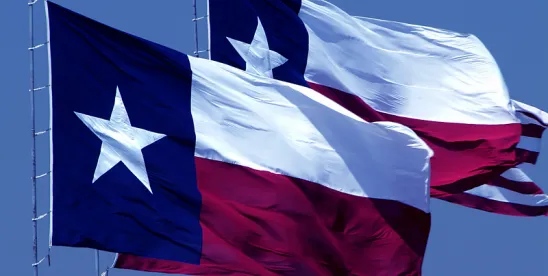The Texas Commission on Environmental Quality (TCEQ) is considering adopting both potential significant changes to the TCEQ’s Penalty Policy and a potential rulemaking to revise the TCEQ’s compliance history rules. These proposed changes are critical to every regulated entity in Texas, in that penalties for alleged environmental violations of any kind could be significantly increased if the TCEQ adopts the discussed changes. These changes are not yet final. TCEQ indicates they will accept comments on the potential changes to the Penalty Policy, and the proposed changes to the compliance history rules will be subjected to the full rulemaking process.
POTENTIAL REVISIONS TO THE PENALTY POLICY
Spurred in part by the increase in catastrophic events at industrial sites (e.g., fires and explosions) in Texas, the TCEQ wants the Penalty Policy to better address compliance failures, both moderate and significant in nature, to avoid future catastrophic events.
The key points being considered are:
-
For alleged violations involving actual releases of pollutants, the percentage of the maximum statutory penalty recommended to be assessed will be increased. For example, the recommended penalty for an alleged violation involving “major harm” from a minor source (based on size of operations and/or potential volume of pollutants) will be adjusted from 30 percent to 50 percent of the statutory maximum penalty.
-
For programmatic alleged violations (for example, failure to obtain a needed authorization, submit reports, or maintain proper records, or some partial failure in those areas that are considered “major”), the percentage of the maximum statutory penalty recommended to be assessed will be, in some cases, doubled.
-
For any form of alleged continuing violations, the number of violation events may increase significantly. For example, what may have been a single “monthly” violation event would become four “weekly” violation events, each carrying the increased penalty.
-
Where there are two or more prior final administrative orders at the same facility for violations in the same media, the facility will not be eligible for the 20 percent deferral typically provided in an expedited enforcement.
By way of example, under the current policy, an actual release that is classified as moderate harm with a base penalty of $5,000 that occurred for one year would likely have been assessed with a proposed $60,000 penalty under the current Penalty Policy. That same violation under the revised policy being discussed could become a $260,000 proposed penalty.
TCEQ is also discussing whether, for counties with a population of more than 75,000 residents, if there is a reportable emissions event, there should be an enhancement added to the penalty of 20 percent. This is intended to address the fact that significant numbers of human receptors could be in close proximity to significant air emission events. For the regulated community with air emissions, this is significant, as about 85-90 percent of the entire Texas population resides in a county with a population of more than 75,000, and regulated industries are often located in these same counties. It is not clear if this proposal will be adopted. One Commissioner expressed concern about how this concept would be implemented, suggesting that perhaps the better trigger would be location within nonattainment counties or those counties on the “watch list.”
Even though the proposed changes to the Penalty Policy are not subject to formal rulemaking, the agency will provide in a press release how the public can comment on proposed changes during a thirty day window. The proposal will then return to the Commissioners for consideration.
POTENTIAL RULEMAKING TO REVISE TCEQ COMPLIANCE HISTORY RULES
This proposed rulemaking would create a brand new classification for compliance history called “under review,” which would apply to those facilities that have caused a major event such as a fire or explosion that impacts the surrounding community. Under the current policy, it is possible for an entity to have a major, catastrophic event that causes actual safety concerns to the public, and still have a satisfactory compliance history rating. The new rule would move such an entity to the “under review” classification, and would provide a mechanism for the TCEQ to have a specified length of time to determine the appropriate classification among the existing classifications. At this point, the rulemaking is fairly conceptual. The Commissioners agreed that there should be a rulemaking, but cautioned that it should be narrow, should include adequate due process procedures, should be site specific (not company-wide), and should carefully consider public comments.
For additional background, the proposed changes are outlined in a staff memo to the Commissioners found here.
You may watch the recorded Work Session here.




 />i
/>i
